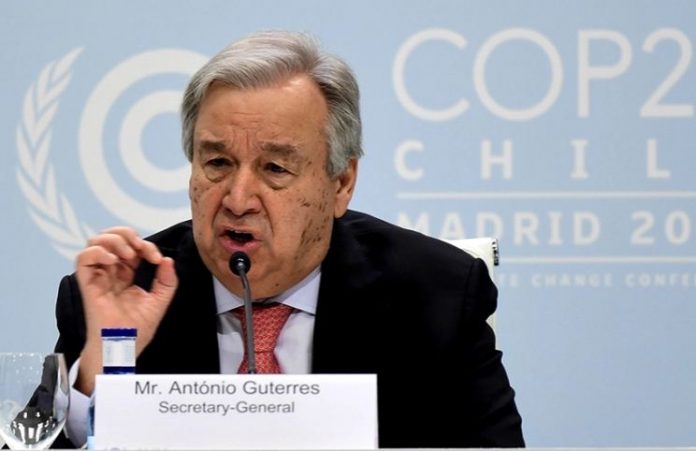United Nations Secretary-General Antonio Guterres told the five permanent members of the Security Council on Sunday that he would like to stay on for a second term, according to two diplomats familiar with the matter.
Guterres, a former Portuguese prime minister, is likely to officially inform the president of the UN General Assembly soon, the diplomats said, speaking on condition of anonymity because the decision wasn’t yet made public.
Guterres, 71, assumed office in January 2017 for a five-year term that finishes at the end of this year. Diplomats say Guterres, who managed to avoid Donald Trump’s wrath largely by refraining from criticizing the U.S. president in public, was waiting for the results of the November election before coming to a decision.
A spokesman for Guterres didn’t immediately respond to a request for comment.
Under Trump, the U.S. has repeatedly clashed with the UN and its organizations, quitting the World Health Organization and angering Security Council members with its effort to kill what remains of the multinational Iran nuclear accord. President-elect Joe Biden has pledged to reverse the go-it-alone approach by returning to the WHO, seeking to repair the Iran deal and rejoining the Paris climate accord.
Guterres has made climate change his signature issue, pushing countries to up their commitments to reduce carbon emissions. Biden’s administration has signaled that climate will be a top priority and his pick for UN ambassador, Linda Thomas-Greenfield, is a seasoned diplomat with experience on four continents.
Most recent UN chiefs have served out two terms, and diplomats expected the so-called P5– Russia, the U.S., the U.K., China and France — to support his re-election bid. Guterres, who has been criticized for at times for failing to call out world powers for human rights abuses, has had to navigate a turbulent period at the UN as Trump turned away from the world body while China grew increasingly assertive.
The selection process for a UN chief has been called opaque, with the permanent five members wielding disproportionate influence over who gets selected, though the 2016 election was the first one to be made more open. Critics have also called on the UN to finally name its first woman chief.
Writing on behalf of a group of 25 countries, Costa Rica and Denmark in December called on the UN to ensure that the “upcoming selection process” meets the “minimum standards of transparency.”
Source : BLOOMBERG
















